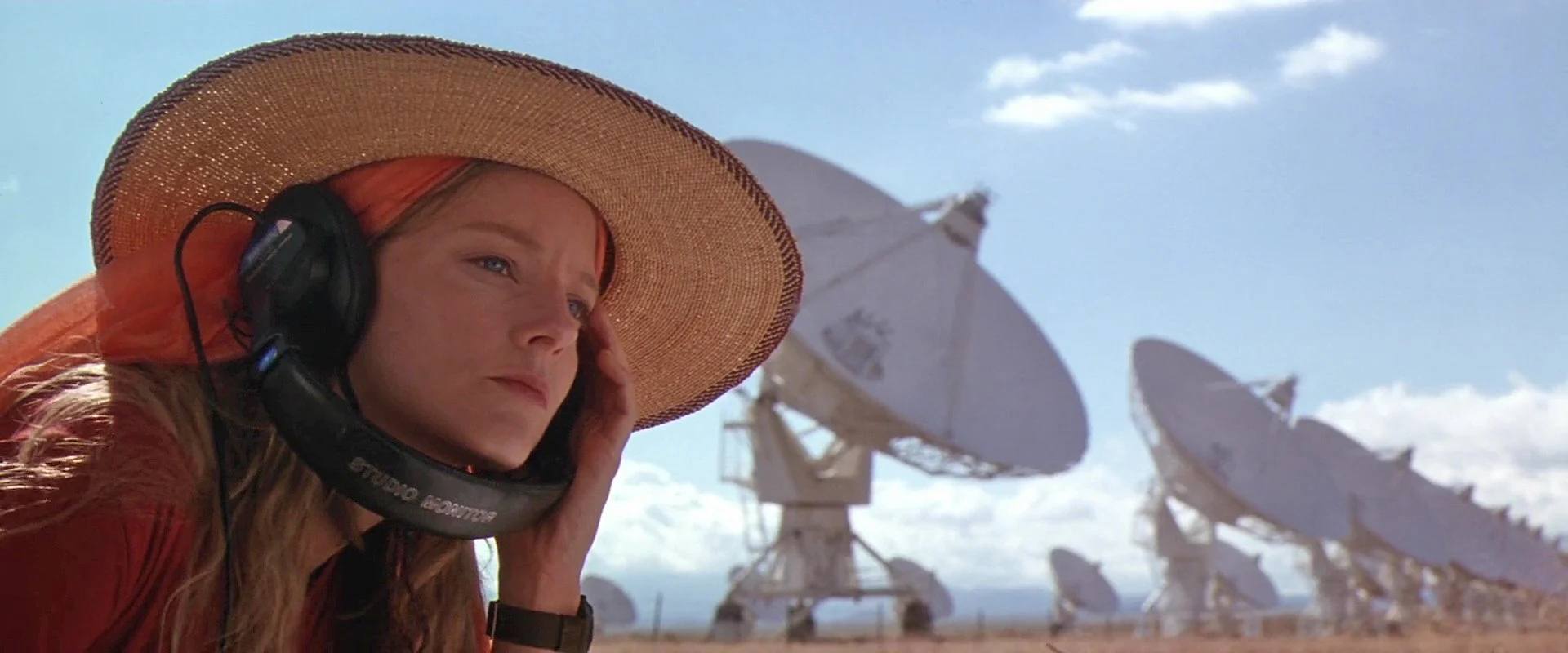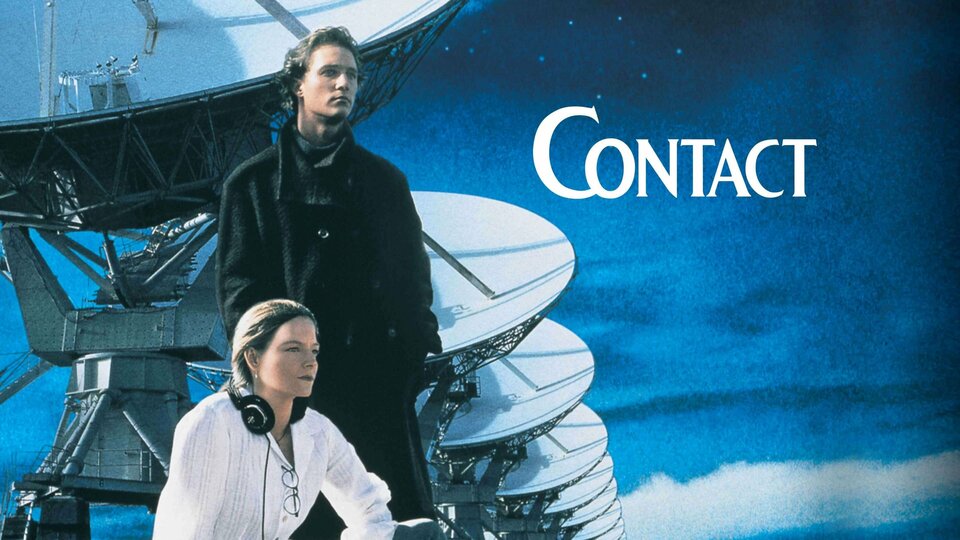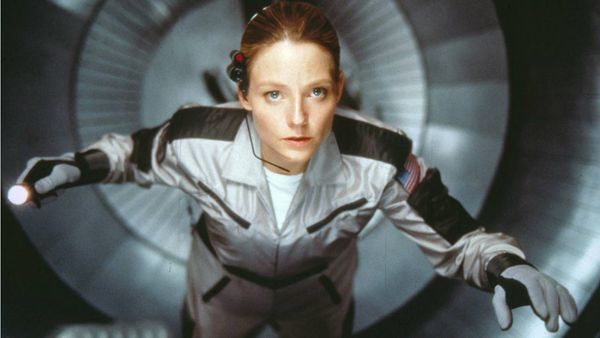Contact (1997)

“Contact” (1997), directed by Robert Zemeckis and based on Carl Sagan’s novel of the same name, is a thought-provoking science fiction film that explores humanity’s quest for extraterrestrial intelligence and the implications of first contact. The film combines elements of speculative science fiction with philosophical inquiry, anchored by strong performances and a compelling narrative.
The story centers on Dr. Ellie Arroway (played by Jodie Foster), a passionate and driven scientist who has dedicated her life to the search for extraterrestrial intelligence (SETI). When Ellie and her team detect a mysterious signal coming from the vicinity of the star Vega, they discover a complex sequence of prime numbers embedded within the transmission—a potential message from an advanced alien civilization.

As the scientific community and the world at large grapple with the implications of the discovery, Ellie becomes embroiled in a debate over how humanity should respond to the possibility of contact with an extraterrestrial intelligence. Supported by a diverse cast of characters, including her mentor Dr. David Drumlin (Tom Skerritt), Palmer Joss (Matthew McConaughey), a religious philosopher, and Michael Kitz (James Woods), a skeptical government official, Ellie navigates political, scientific, and personal challenges.
Jodie Foster delivers a powerful and nuanced performance as Ellie Arroway, portraying her character’s intellectual curiosity, determination, and vulnerability with authenticity. Foster’s portrayal captures Ellie’s lifelong dedication to science and her struggle to balance professional ambitions with personal connections. The character’s journey—from skepticism to awe and wonder as she explores the possibilities of the cosmos—reflects the film’s exploration of humanity’s place in the universe.

The film’s themes resonate deeply, touching on issues of faith, science, politics, and the nature of belief. “Contact” explores the tension between scientific inquiry and religious faith through the contrasting perspectives of Ellie, a staunch empiricist, and Palmer Joss, a spiritual thinker who sees the potential for spiritual awakening in the discovery of extraterrestrial life. The film raises profound questions about the search for meaning, the boundaries of knowledge, and the ethical implications of technological advancement.
Robert Zemeckis’ direction brings Carl Sagan’s vision to life with stunning visuals and a sense of awe and wonder. The film’s depiction of the journey through the wormhole and Ellie’s encounter with the extraterrestrial beings is visually striking and thematically resonant, conveying a sense of the vastness and mystery of the cosmos.

The screenplay, adapted by James V. Hart and Michael Goldenberg, remains faithful to Sagan’s exploration of scientific concepts while weaving a compelling narrative that engages both the mind and the heart. The film’s pacing is deliberate, allowing for moments of introspection and philosophical contemplation amidst the scientific and political intrigue.
“Contact” is also notable for its use of practical effects and seamless integration of CGI, which enhance the film’s realism and immersion. The alien landscapes and futuristic technology are rendered with attention to detail, creating a believable vision of humanity’s future in space exploration.

While “Contact” received critical acclaim for its intellectual depth and thematic resonance, some critics noted its measured pacing and complex themes may not appeal to all audiences. However, the film’s enduring relevance and thought-provoking exploration of humanity’s place in the universe have cemented its status as a classic in the science fiction genre.
Overall, “Contact” is a thought-provoking and visually compelling exploration of humanity’s search for meaning and connection in the cosmos. Anchored by Jodie Foster’s standout performance and Robert Zemeckis’ visionary direction, the film remains a testament to the power of scientific curiosity and the enduring quest for knowledge beyond our own world.